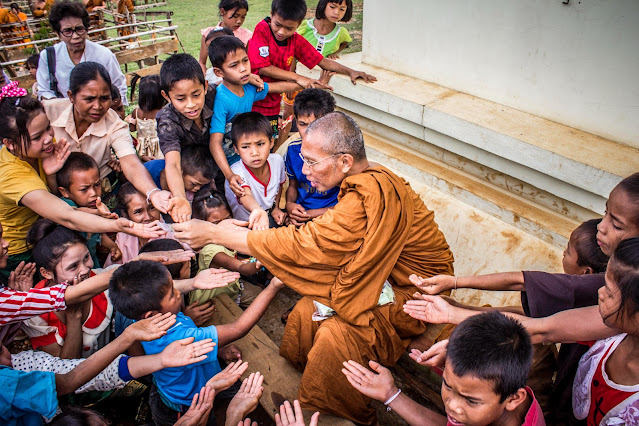Climate Change and Its Human Toll: A Stark Reality
Climate Change and Its Human Toll: A Stark Reality
Climate change is a pressing global issue that transcends boundaries, impacting lives and ecosystems across the planet. While we often discuss rising temperatures, melting ice caps, and extreme weather events, there's a harsh reality that deserves our utmost attention: the human toll of climate change.
Every year, a staggering 150,000 lives are lost due to the consequences of a warming planet. In this comprehensive article, we delve into the profound impact of climate change on human health and explore the urgent need for collective action.
Understanding the Link Between Climate Change and Human Health
Rising Temperatures and Heat-Related Illnesses
As the Earth's average temperature continues to rise, we witness an alarming increase in heat-related illnesses. Prolonged exposure to extreme heat can lead to heatstroke, dehydration, and even death. Vulnerable populations, including the elderly and children, are particularly at risk.
Air Pollution and Respiratory Diseases
Climate change exacerbates air pollution, which has dire consequences for respiratory health. Polluted air can lead to conditions such as asthma, bronchitis, and other respiratory diseases. The fine particulate matter and pollutants in the air pose a significant threat to our well-being.
Vector-Borne Diseases on the Rise
Warmer temperatures create ideal breeding conditions for disease-carrying vectors, such as mosquitoes and ticks. This has led to the spread of diseases like malaria, dengue fever, and Lyme disease into regions where they were once rare. The impact on public health is substantial.
The Disproportionate Burden on Vulnerable Communities
Developing Nations and Limited Resources
The effects of climate change are not distributed evenly. Developing nations with limited resources often bear the brunt of the burden. These regions face challenges in adapting to changing conditions and providing adequate healthcare to their populations.
Displacement and Mental Health
As climate change leads to more frequent and severe natural disasters, communities are displaced from their homes. This displacement not only disrupts lives but also takes a toll on mental health. Anxiety, depression, and post-traumatic stress disorder are common among those forced to leave their homes due to climate-related disasters.
The Urgent Need for Collective Action
Mitigating Climate Change
To reduce the human toll of climate change, we must take decisive action to mitigate its effects. This includes reducing greenhouse gas emissions, transitioning to renewable energy sources, and implementing policies that prioritize sustainability and environmental protection.
Adaptation and Resilience
In addition to mitigation, we must also focus on adaptation and building resilience. This involves developing strategies to protect vulnerable communities, improving healthcare infrastructure, and addressing the health risks associated with a changing climate.
Raising Awareness and Advocacy
Raising awareness about the human toll of climate change is crucial. Advocacy efforts can influence policymakers to take meaningful action, allocate resources, and implement policies that protect public health in a warming world.
Conclusion
The harsh reality of climate change is that it is not just an environmental issue; it is a human issue. The toll it takes on human lives, particularly in vulnerable communities, is a stark reminder of the urgency of addressing this global crisis. It is incumbent upon us, as a global community, to take swift and meaningful action to combat climate change and protect the well-being of current and future generations. Only through collective effort can we mitigate the human toll of climate change and create a more sustainable and healthier world for all.



Comments
Post a Comment
Please respect others users and refrain from posting racist, abusive, pornographic or spam-related comments. All such comments will be deleted and the poster may be reported to the relevant body.